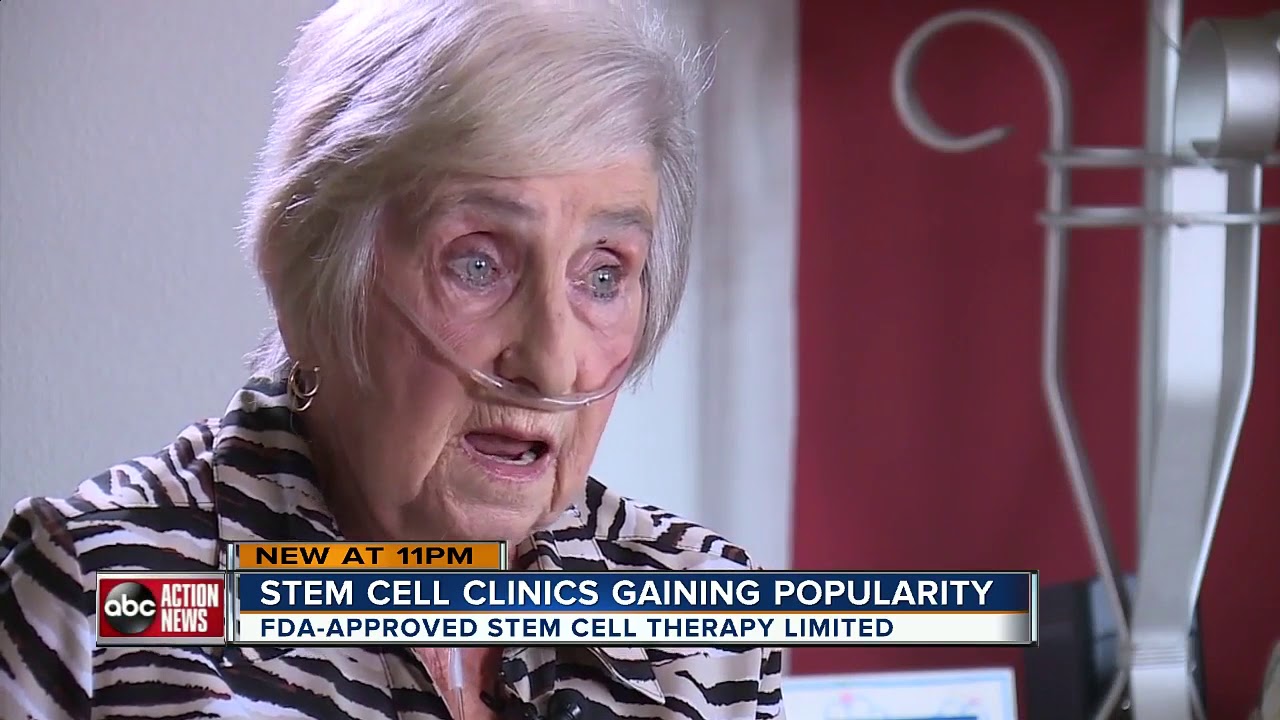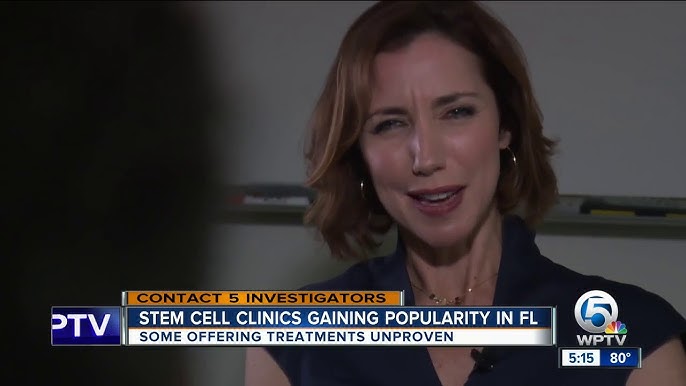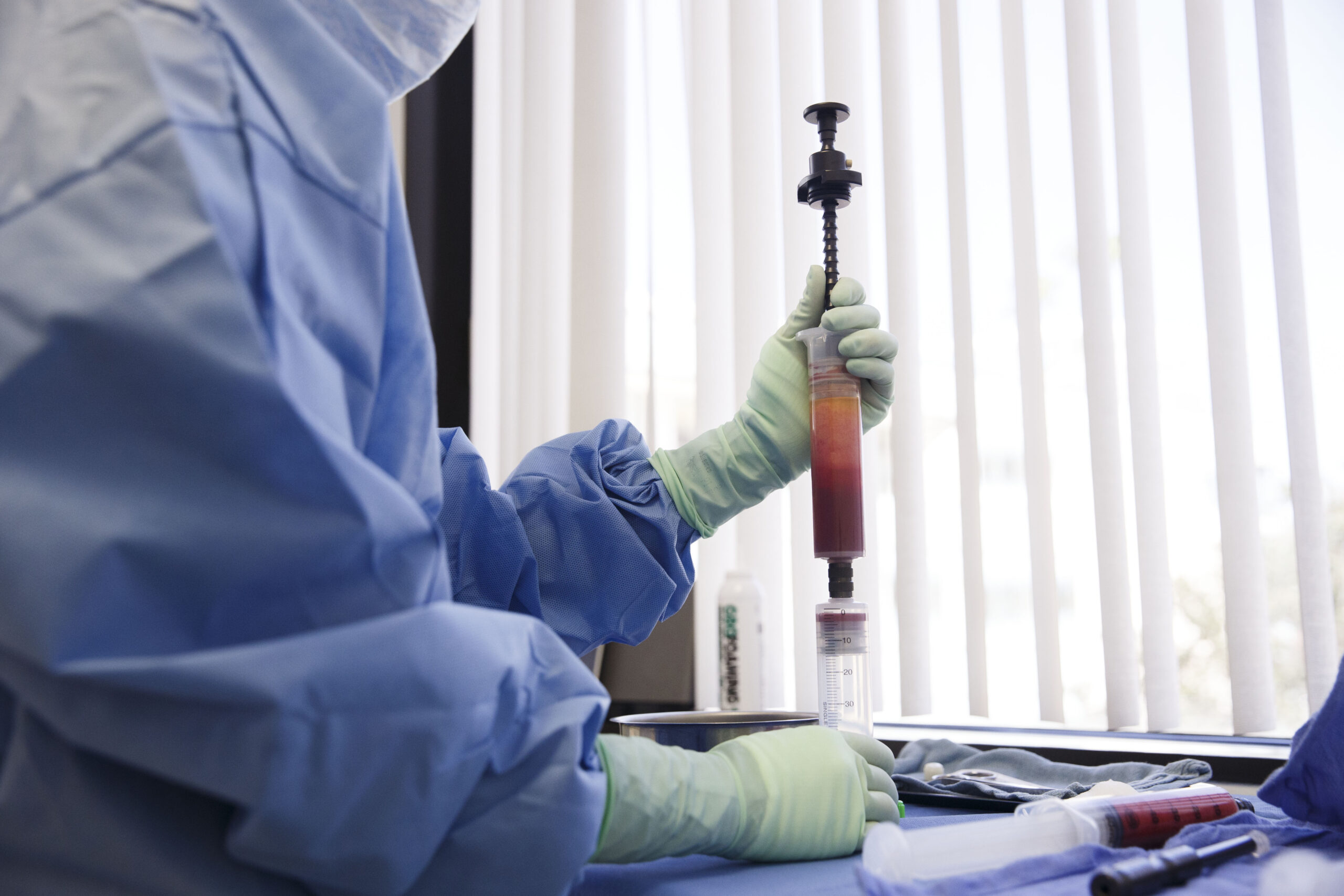Stem cell therapy in Florida is drawing attention, particularly for its growing presence in the healthcare industry. While it holds the promise of improved health and healing, many patients are finding themselves disappointed, frustrated, and in worse health after undergoing these treatments. This article explores the experiences of patients who sought hope from stem cell clinics, often run by unregulated providers, and the pitfalls they encountered in their search for better health.
You’ll discover heart-wrenching stories of individuals who were driven by desperation and the hope of miraculous cures. Despite the claims made by numerous clinics, the reality for many has been heartbreak and unfulfilled promises, leading to lawsuits and calls for increased scrutiny. This examination sheds light on the challenges faced by patients and emphasizes the importance of caution when considering stem cell treatments.
Overview of Stem Cell Therapy in Florida
Definition and Explanation of Stem Cell Therapy
Stem cell therapy is often described as the medicine of tomorrow. In simple terms, it involves using specialized cells from your own body to heal injuries and treat diseases. This innovative approach aims to harness the remarkable ability of stem cells to regenerate damaged tissues and restore function to vital organs. As you consider this option, it’s essential to understand that while the science behind stem cell therapy shows promise, it’s still evolving, and not all treatments are fully understood or proven effective.
Current Legal Status and Regulation in Florida
In Florida, the legal landscape surrounding stem cell therapy can be somewhat ambiguous. While state regulations exist, many clinics operate in a gray area, offering treatments that often lack robust scientific backing. As you explore treatment options, it’s crucial to be aware of these regulations. Some clinics face federal and state scrutiny for providing unapproved procedures, but the rapid proliferation of facilities often outpaces regulations. This leads to myriad options for you to consider, but it also increases the risk of encountering misleading claims.
Growth of Stem Cell Clinics in the State
You might have noticed that stem cell clinics have been sprouting up across Florida, resembling the rise of med spas. This rapid growth reflects both the demand for alternatives in medicine and the promise of regenerative therapies. Unfortunately, this surge is also accompanied by concerns related to patient safety and treatment efficacy. With so many clinics claiming miraculous outcomes, you may find yourself navigating a complicated landscape where discerning fact from fiction becomes challenging.
Patient Experiences: The Promises vs. Reality

Case Studies: Patients’ Expectations
When considering stem cell therapy, many patients come in with tremendous hope and expectation for improved health. For instance, individuals suffering from debilitating conditions like COPD or terminal diseases often view these treatments as potential lifelines. They believe that new therapies using their own cells can lead to significant improvements in their quality of life. These hopeful narratives often resonate deeply as you read personal stories about lives purportedly transformed by stem cell treatments.
Disappointments Faced by Patients
However, reality can sometimes fall short of these expectations. Many patients experience disappointments after undergoing treatment, with some reporting feelings of frustration or even worsening health. The gap between expectation and actual outcomes can lead to emotional distress. You may hear stories of individuals whose conditions remained unchanged or deteriorated following treatments, prompting them to question the validity of the claims made by the clinics.
Positive Outcomes: Are They Truly Happening?
Amidst the disappointments, there are reports of patients who believe they have experienced positive outcomes from stem cell therapy. These stories often become focal points in clinic marketing, fueling demand for procedures. But it’s essential to approach these narratives with a critical eye. While some patients may report improvement, it’s crucial to consider whether these outcomes stem from the therapy itself or other factors such as lifestyle changes or placebo effects.
Safety Concerns Associated with Stem Cell Therapy

Lack of Regulations and Oversight
One of the most pressing concerns surrounding stem cell therapy is the lack of stringent regulations and oversight. Many clinics operate with minimal oversight, allowing them to offer treatments that may be unproven, experimental, or even hazardous. As you research options, be aware that the absence of regulatory safeguards can put patients at risk and lead to uninformed decisions about their health.
Risks of Unproven Treatments
Engaging in unproven treatments poses significant risks. From potential infections to adverse reactions, the lack of comprehensive clinical trials means that you could be exposed to unknown dangers. It’s wise to educate yourself on the potential risks associated with specific procedures. Patient testimonials highlighting negative experiences can further inform your understanding of these risks.
Federal and State Warnings on Stem Cell Clinics
Federal and state authorities have raised alarms about dubious clinics offering stem cell therapy. You might have come across warnings that emphasize the need for clinical trials before new treatments can be broadly endorsed. These warnings serve as a reminder to exercise caution and do thorough research before proceeding with any treatment. It’s prudent to consult with qualified healthcare professionals before making decisions.
Common Misconceptions About Stem Cell Therapy

Misleading Marketing Tactics Used by Clinics
Many clinics employ aggressive and sometimes misleading marketing strategies to attract patients desperate for solutions. If you’re considering treatment, be cautious of overly optimistic claims regarding miraculous outcomes and success rates. It’s essential to seek transparent information and be aware of the potential for exaggerated promises.
Public Perception vs. Medical Community’s View
The general public’s perception of stem cell therapy often diverges from that of the medical community. While you may hear about hopeful anecdotes in social circles or social media, many healthcare professionals urge caution, emphasizing the need for rigorous scientific validation. Engaging in conversations with medical experts can provide valuable insight into the realities of stem cell therapy.
The Role of Success Stories in Driving Demand
Success stories play a critical role in shaping public interest in stem cell therapy. While these narratives can inspire hope, they can also lead to an uncritical acceptance of therapy. As a potential patient, it’s essential to distinguish between anecdotal successes and clinically validated results. This discernment will help you make more informed decisions on your treatment options.
Financial Implications of Stem Cell Treatments

Cost Breakdown of Common Procedures
The financial aspect of stem cell therapy can be daunting. Prices for treatments can range significantly, sometimes costing thousands of dollars per session. For instance, procedures at some clinics can reach upwards of $6,000 or more. As you research your options, it’s wise to understand the full cost of these therapies, including potential follow-up treatments and additional medical expenses.
Insurance Coverage and Limitations
Another critical factor to consider is the insurance coverage surrounding stem cell therapy. Unfortunately, many insurance plans do not cover these treatments, which can place a significant financial burden on patients and families. Given this reality, you should investigate your insurance options thoroughly to avoid unexpected costs that could strain your finances.
The Financial Burden on Families
The high costs associated with stem cell therapy can lead to a considerable financial burden for families. Cases have arisen where individuals empty their savings or take on debt to afford these treatments in hopes of achieving better health. As you explore these options, consider the financial implications carefully, weighing the potential benefits against the associated costs.
Legal Issues Surrounding Stem Cell Clinics

Recent Class Action Lawsuits
Legal challenges have emerged as patients voice their concerns about the efficacy and safety of stem cell treatments. Recent class action lawsuits against certain clinics highlight the growing dissatisfaction among patients who claim to have received subpar care or misleading information. These lawsuits encapsulate the legal risks involved for clinics, as well as the potential for patients to seek redress.
Investigations into False Claims
Investigative agencies have been scrutinizing stem cell clinics for making false claims. If you find yourself considering treatment, it’s advisable to stay informed about any investigations involving clinics you might consider. This awareness can guide your decision-making and enhance your understanding of the broader context surrounding these therapies.
Patient Rights and Legal Recourses
As a patient, it’s important to be aware of your rights and any legal recourses available to you. Familiarize yourself with existing patient protection laws and regulations that govern healthcare. Should you experience negative outcomes or feel misled, being informed about your rights can empower you to take appropriate action.
Expert Opinions on Stem Cell Therapy
Insights from Medical Professionals
Experts in the field often provide cautious perspectives on stem cell therapy. Medical professionals point out that while the potential exists, much of the current practice remains experimental. As you seek treatment, consider consulting with qualified healthcare providers who can offer insights based on solid scientific research and clinical experience.
Ethical Considerations in Stem Cell Research
The ethical landscape surrounding stem cell therapy involves complex considerations. Issues regarding consent, the source of stem cells, and the potential for exploitation require careful reflection. As a patient, you should be well-informed about these ethical dimensions and consider how they align with your personal values and beliefs.
The Future of Regenerative Medicine
The future of regenerative medicine, including stem cell therapy, holds exciting potential. Ongoing research may lead to breakthroughs that could solidify the effectiveness of certain treatments. Staying informed about emerging research and developments will better equip you to make educated decisions regarding your own healthcare journey.
Patient Advocacy and Resources
Organizations Supporting Patient Rights
Several organizations advocate for patient rights, providing resources and support for individuals exploring stem cell therapy. These organizations focus on educating patients about their options, advocating for ethical practices, and assisting those seeking accountability from clinics. Engaging with these groups can offer valuable guidance as you navigate your options.
How to Find Reliable Information
With the abundance of information available, it can be challenging to discern reliable sources. It’s essential to develop critical skills for evaluating information related to stem cell therapy. Prioritize peer-reviewed studies, reputable medical organizations, and insights from qualified healthcare providers to ensure that you’re making informed choices.
Building a Support Network for Affected Patients
Connecting with others who share similar experiences can be invaluable. Building a support network, whether through online forums, local patient advocacy groups, or other communities, can help alleviate feelings of isolation and provide emotional and practical assistance during what can be a challenging treatment journey.
The Role of Media in Shaping Perceptions
Coverage of Stem Cell Clinics and Patients’ Stories
The media plays a crucial role in shaping public perceptions of stem cell therapy. Coverage often highlights patient success stories and the promise of new treatments while also occasionally focusing on controversies surrounding unregulated clinics. As you engage with these narratives, consider the motivations behind media portrayals and how they might affect your understanding of stem cell therapy.
Impact of Investigative Journalism
Investigative journalism can shed light on the darker aspects of stem cell therapy, exposing unethical practices or misleading claims made by clinics. This form of journalism helps to hold clinics accountable and reinforces the importance of critical evaluation. You can use this insight to make informed decisions and approach treatments with increased caution.
Social Media Influence on Patient Decisions
The influence of social media on patient decisions cannot be overstated. Platforms often amplify success stories, creating a sense of urgency among those seeking quick solutions. As you navigate this landscape, it’s essential to balance these narratives with scientifically grounded information, ensuring that your choices are based on evidence rather than hype.
Conclusion
Summary of Key Findings
As you consider stem cell therapy in Florida, it’s crucial to navigate the complexities surrounding its promises and realities. Understanding the legal, financial, and ethical implications will empower you to make informed decisions. While the field holds potential, many treatments remain experimental and unregulated.
Future Directions for Patients and Providers
The road ahead for both patients and providers requires cautious optimism. Continued research and evolving regulations hold the promise of a more transparent future in stem cell therapy. Both parties must work together to drive meaningful change and protect patient rights and wellbeing.
Final Thoughts on Navigating Stem Cell Therapy in Florida
Ultimately, navigating the world of stem cell therapy demands vigilance and discernment. As you consider your options, remember the importance of seeking reliable information, consulting with qualified medical professionals, and advocating for your rights. With the right approach, you can make healthier choices that will support your wellbeing and future. Stem cells have the extraordinary ability to repair and regenerate damaged cells, making them a promising solution for many chronic conditions. However, traditional stem cell therapy is often out of reach due to high costs, the need for donors, or the requirement to travel abroad. Fortunately, a groundbreaking stem cell technology is now available, offering a more affordable and accessible way to experience these benefits.
This technology complements healthy lifestyle habits—like eating well, exercising, and reducing toxins—to enhance the body’s natural healing processes. It accelerates recovery, supports immune function, and combats inflammation by strengthening your cells. To learn how this innovative solution can benefit you, your loved ones, or those facing health challenges, contact me at stemboostx@gmail.com with the subject “AIWNBOX.”


